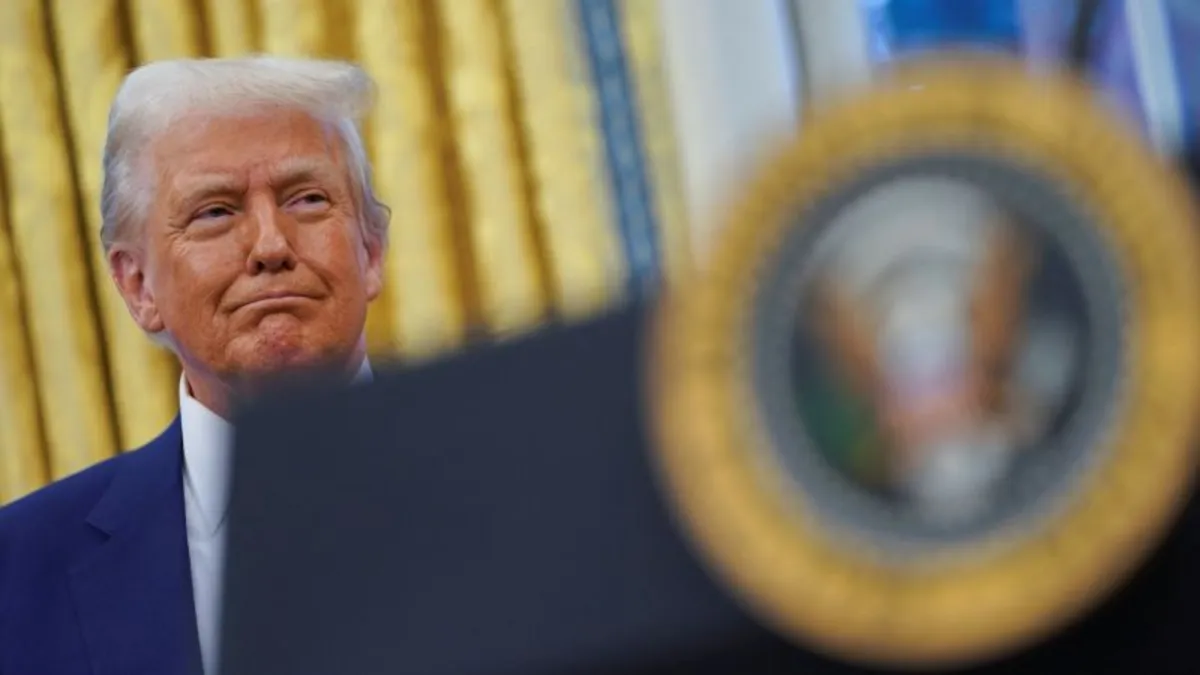
The Senate has voted to confirm Robert F. Kennedy Jr. as the Secretary of the Department of Health and Human Services (HHS), marking a significant win for President Donald Trump. Despite facing rigorous scrutiny due to his controversial views on vaccines and public health policy, Kennedy's nomination was approved with a vote of 52-48.
Former Senate GOP Leader Mitch McConnell, a polio survivor, was the only Republican senator to vote against Kennedy. This confirmation underscores Trump’s influence over the Senate GOP majority, as other contentious nominees like Pete Hegseth for Defense Secretary and Tulsi Gabbard for Director of National Intelligence have also been confirmed.
As one of the nation’s leading public health officials, Kennedy will oversee key federal health agencies including the Food and Drug Administration (FDA), the National Institutes of Health (NIH), the Centers for Medicare and Medicaid Services (CMS), and the Centers for Disease Control and Prevention (CDC).
During his confirmation hearings, Kennedy addressed accusations of being anti-vaccine, stating he is “pro-safety” and acknowledging the critical role vaccines play in healthcare. However, a CNN fact check from 2023 highlighted his history as a prominent anti-vaccine activist, often using misleading claims to undermine public confidence in vaccines.
Federal agencies are grappling with funding challenges following judicial blocks on the White House’s efforts to pause federal assistance. Agencies like FEMA, the EPA, and USAID are struggling to maintain operations with suspended funds.
Trump officials claim these suspensions are lawful and compliant with executive orders, despite lawsuits alleging violations of Congress’ spending powers. Interviews and court filings reveal significant disruption in federal spending as Trump and Elon Musk’s Department of Government Efficiency push for spending cuts.
Recent geopolitical developments are reshaping transatlantic relations. Donald Trump’s discussions with Vladimir Putin aim to resolve the war in Ukraine, while Defense Secretary Pete Hegseth urges European allies to assume greater responsibility for security, marking a shift towards Trump's “America First” ideology.
Although Hegseth reaffirmed commitment to NATO, Trump’s stance suggests a reevaluation of traditional alliances, echoing historical skepticism of foreign entanglements.
The Trump administration, alongside Elon Musk’s Department of Government Efficiency, has initiated widespread terminations at federal agencies. Employees at the Department of Education and the Small Business Administration are facing layoffs, marking the start of efforts to reduce the federal workforce significantly.
Approximately 75,000 employees have accepted offers to leave their jobs but remain paid through September. This move is part of a broader strategy to streamline government operations.
President Donald Trump is scheduled to sign executive orders and meet with Indian Prime Minister Narendra Modi at the White House. Additionally, Trump is expected to announce new reciprocal tariffs soon. Meanwhile, Vice President JD Vance travels from the AI summit in Paris to Germany for the Munich Security Conference.
In the Senate, votes on key nominations continue, including Kennedy’s confirmation and the nomination of Kash Patel as FBI Director. Defense Secretary Pete Hegseth remains engaged with NATO allies in Belgium.
In a press briefing, Trump discussed several topics, including the ongoing war in Ukraine and his administration’s efforts to overhaul federal governance. He hinted at impending reciprocal tariffs and expressed a desire to close the Department of Education.
Trump also addressed legal challenges to his policies and reinforced his stance on NATO, suggesting a ceasefire in Ukraine is likely in the near future.